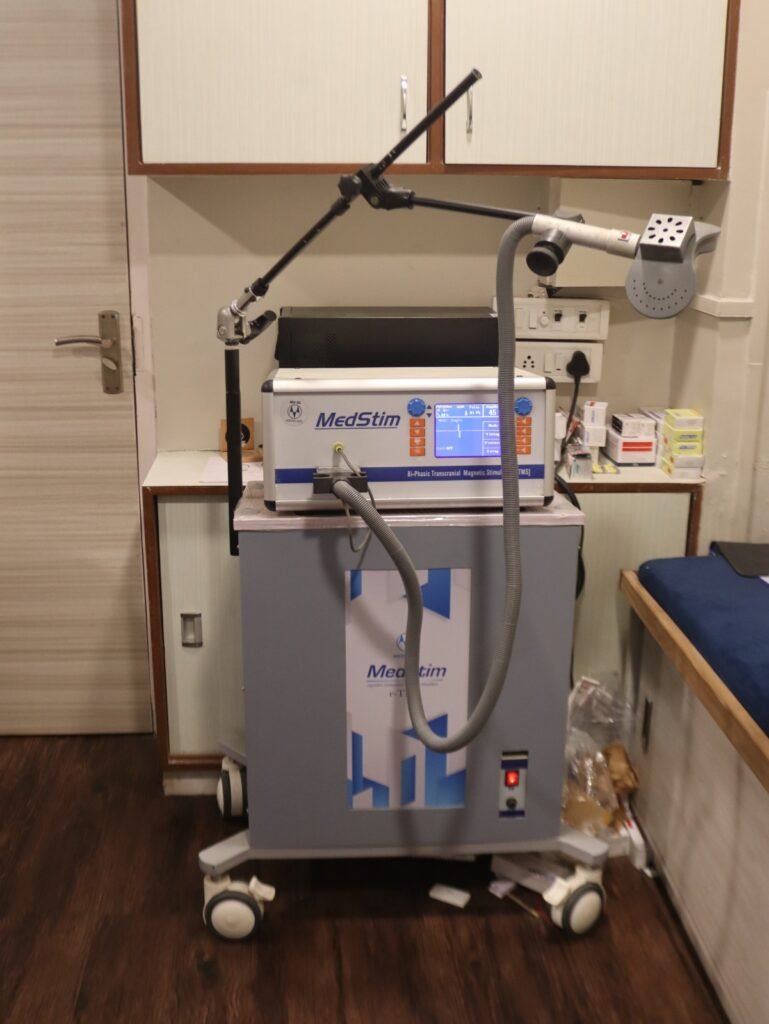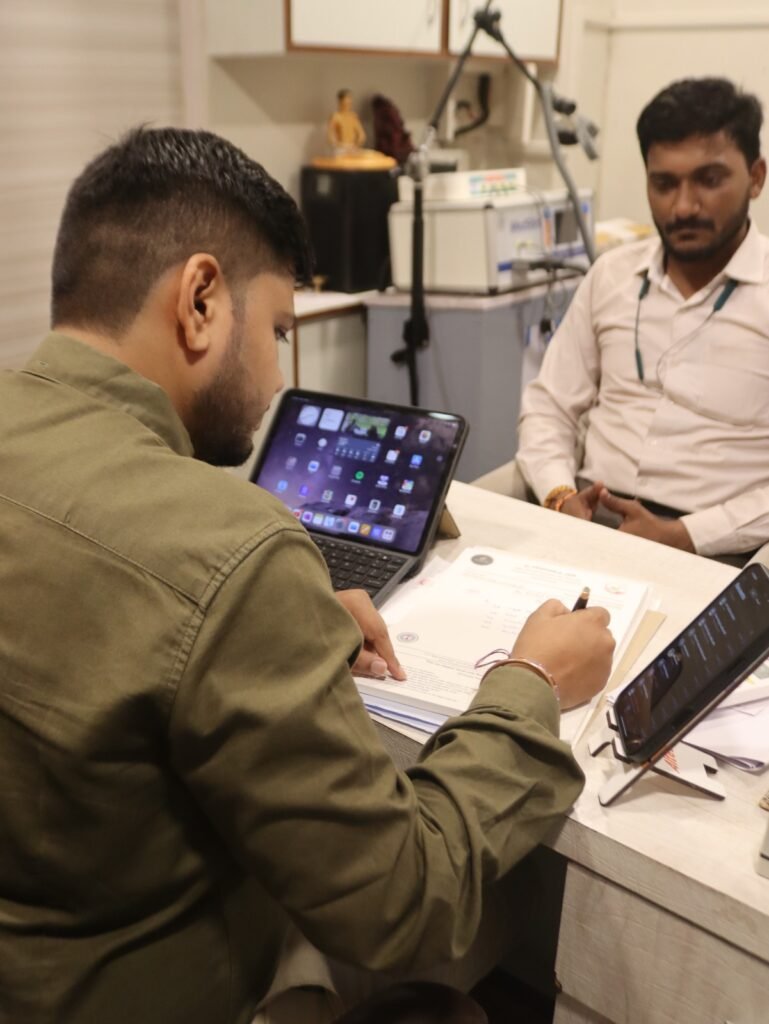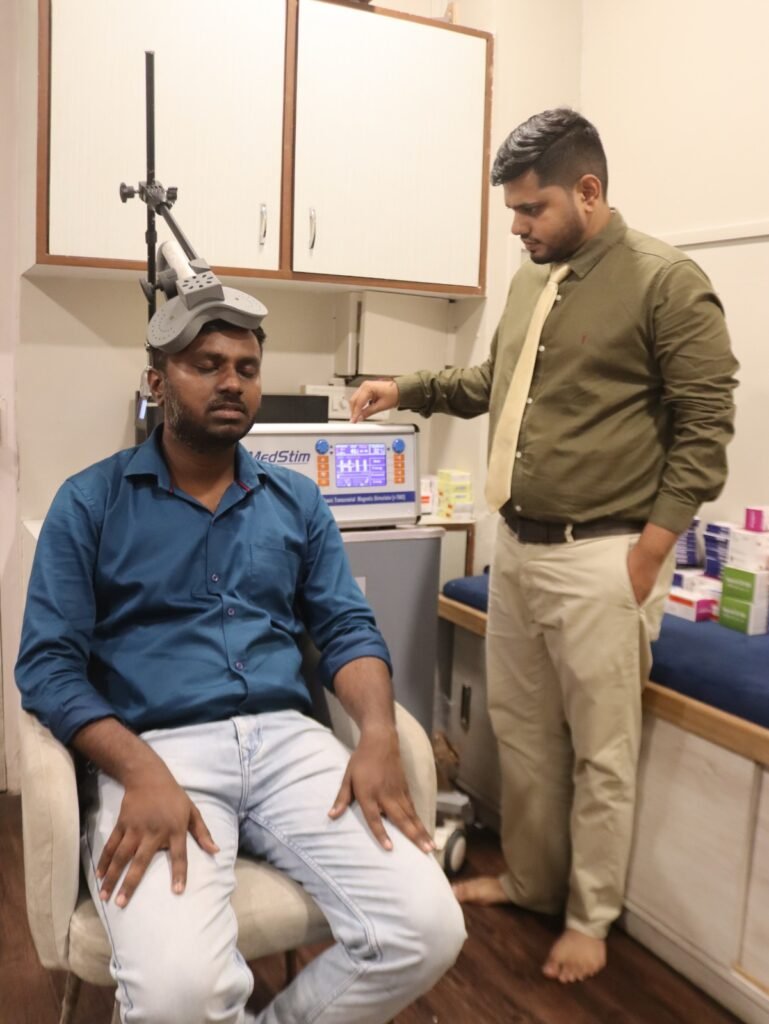
TMS Therapy in India
Our brain runs on billions of tiny nerve cells that talk to each other every second. These connections decide how we feel, how we think, and how motivated we are to get out of bed. When these circuits stop firing the way they should, mental health conditions like depression or OCD can take over. The World Health Organization reports that more than 280 million people worldwide are affected by depression. In India, nearly 56 million people live with depression, and another 38 million with anxiety. Despite this, many still don’t reach out for treatment, often because of stigma or lack of awareness.
That’s where Transcranial Magnetic Stimulation, or TMS therapy, is changing the picture. It’s a non-invasive treatment, drug-free, and showing promise for those who haven’t found relief elsewhere.

Dr. Prakhar Jain, an acclaimed psychiatrist in Mumbai, emphasizes: “Mental health is not a sign of weakness but an area of strength that requires nurturing. TMS therapy offers hope to those who have tried multiple treatments without success. It provides a safe, evidence-based pathway for recovery and resilience.”
Understanding TMS Therapy
TMS therapy is a cutting-edge treatment involving magnetic pulses that stimulate specific regions of the brain responsible for regulating mood. Unlike medications, which work chemically throughout the body, TMS works locally and directly on underactive brain cells, thereby improving communication pathways. It is completely non-invasive, does not require anesthesia, and allows patients to resume normal activities immediately after the session.
Globally, TMS has gained significant recognition, particularly in the United States and Europe, where it has been FDA-approved since 2008 for depression. In India, its adoption is growing, making advanced mental health treatments more accessible than ever before.

TMS Therapy at Dr. Prakhar Jain’s Practice
Dr. Prakhar Jain, a distinguished psychiatrist in India, provides personalized TMS therapy to patients who may not have responded to medications or psychotherapy. Each treatment plan is carefully tailored based on the individual’s history, symptoms, and goals. His empathetic approach ensures that patients feel safe, supported, and understood throughout their journey.
Dr. Jain explains: “Every patient brings a unique story, and TMS allows us to address their needs without the side effects of traditional medications. It’s not just about treating symptoms, but about restoring hope and functionality in daily life.”
Know the Procedure
Patients often wonder about the preparation required before TMS therapy. The process is simple and patient-friendly. Things to remember:
Dr. Jain explains: “Every patient brings a unique story, and TMS allows us to address their needs without the side effects of traditional medications. It’s not just about treating symptoms, but about restoring hope and functionality in daily life.”
No fasting is required before the session
Individuals are seated comfortably while a specialized coil is placed near the scalp to deliver magnetic pulses
Each session typically lasts between 30 to 40 minutes
Multiple sessions are scheduled across a few weeks for optimal results
Multiple sessions are scheduled across a few weeks for optimal results
Here’s how it works in practice:
Assessment: A thorough evaluation is conducted to determine if TMS is suitable.
Mapping: The doctor identifies the exact area of the brain to stimulate.
Stimulation: Pulses are delivered painlessly, often described as tapping sensations.
Post-Session: Patients can immediately return to work, school, or home without downtime.
Unlike electroconvulsive therapy (ECT), there is no memory loss, sedation, or hospitalization required.
Benefits of TMS Therapy
TMS therapy in India has been making a remarkable difference for individuals living with conditions such as depression, OCD, anxiety disorders, and even ADHD. The key benefits include:
Non-invasive & drug-free: No need for surgery or daily medications.
Minimal side effects: Safer compared to long-term use of antidepressants.
Improved quality of life: Patients often report better sleep, focus, and energy.
Lasting results: Studies show sustained improvement even months after therapy.
Broader applications: Effective not only for depression but also for OCD and certain neurological conditions.
Dr. Prakhar Jain, a compassionate ADHD specialist in Mumbai, shares: “For patients with ADHD or depression who have struggled with side effects of medication, TMS brings a sense of relief. They feel more focused, energetic, and balanced—qualities they may not have experienced for years.”
Here’s what you should know before making a decision, though…
Possible Side Effects
Like any medical treatment, TMS therapy may have some side effects, though they are usually mild and temporary. The most common include:
Mild headache or scalp discomfort at the site of stimulation.
Tingling or facial muscle twitching during the session.
Rare instances of seizures, though this risk is extremely low when administered under expert supervision.
Compared to the challenges of long-term antidepressant use—such as weight gain, sleep disturbances, or sexual dysfunction—the side effects of TMS are far more manageable.
Dr. Prakhar Jain, an empathetic OCD specialist in India, explains: “Patients often express relief when they realize TMS does not carry the systemic side effects associated with medication. A brief headache is a small trade-off for the possibility of long-term mental well-being.”
Frequently Asked Question

1. How much does TMS therapy cost in India?
2. Is TMS therapy painful?
3. How soon can I expect results?
4. Can TMS be combined with other treatments?
5. Who is an ideal candidate for TMS?
Disclaimer: The information shared in this content is for educational purposes only and not for promotional use.



